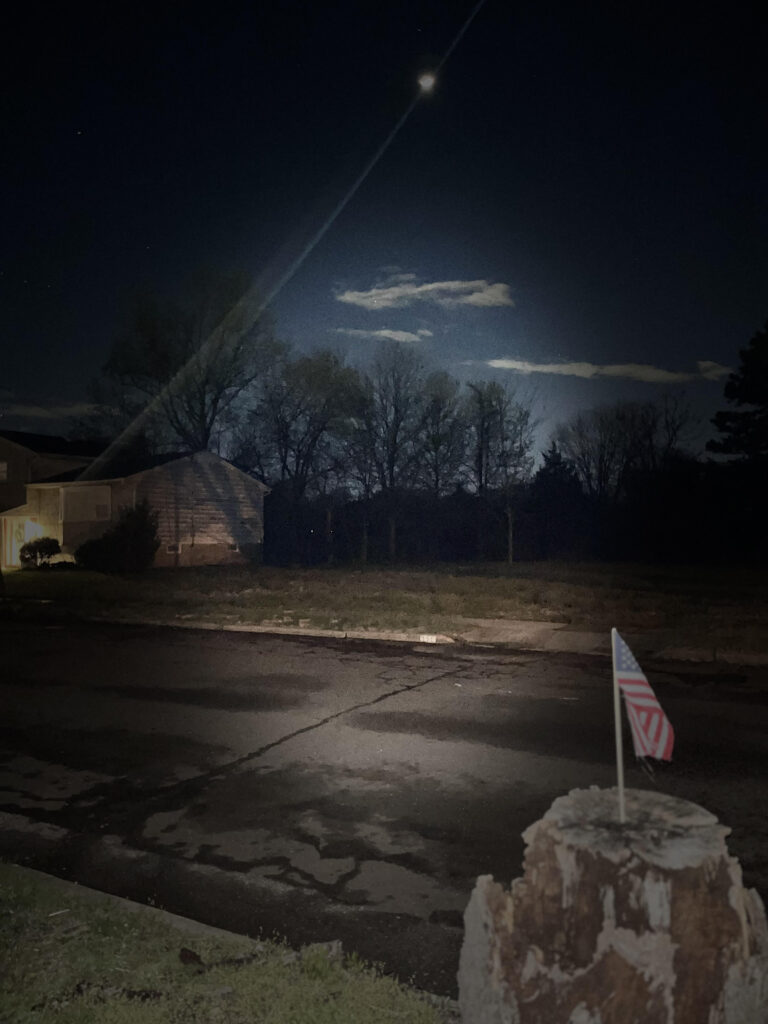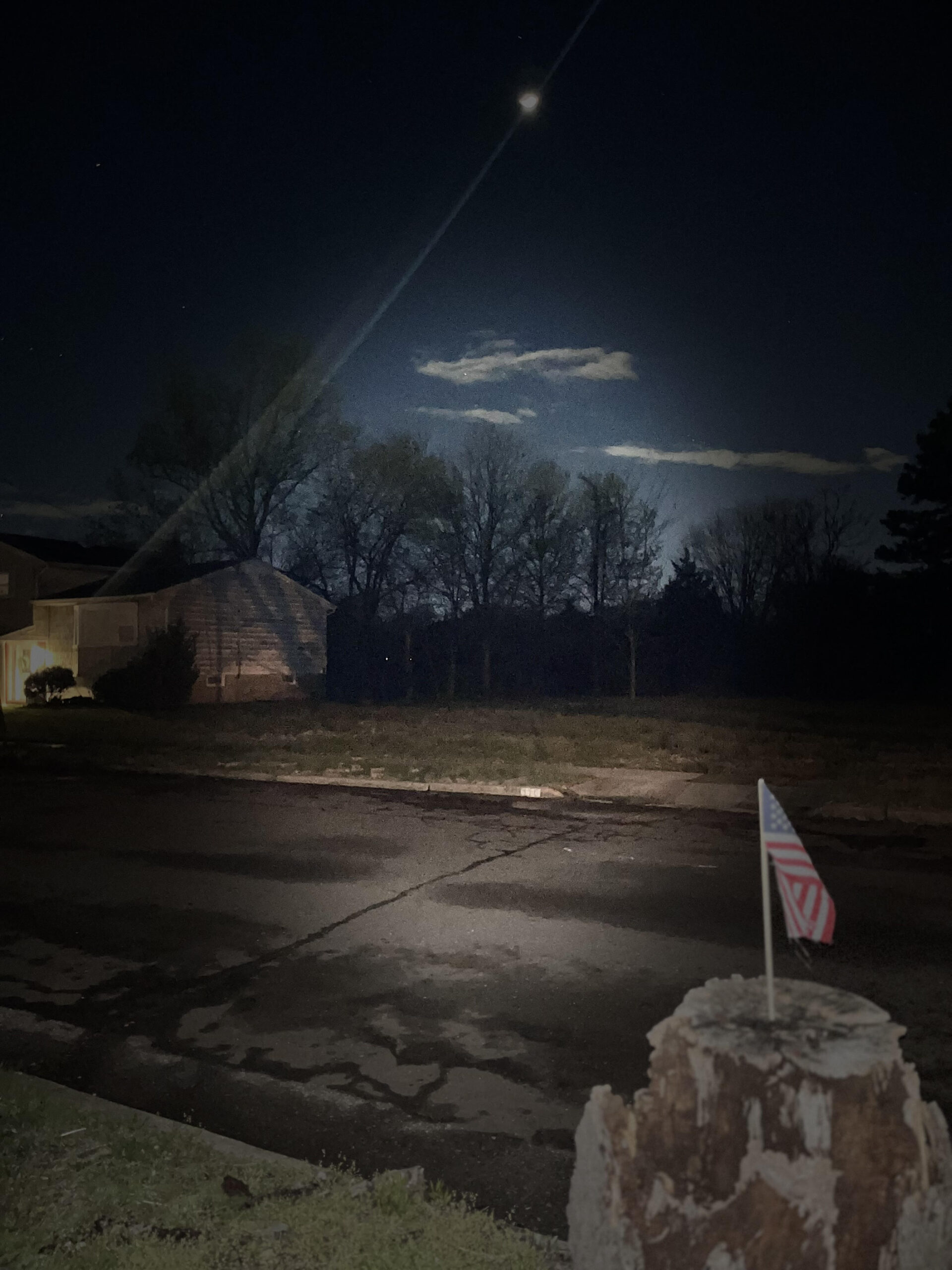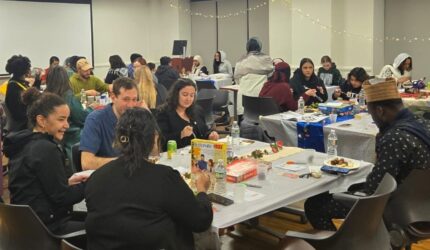
Editor’s Note: Today marks the 12-year anniversary (October 22, 2012) of Hurricane Sandy.
Sandra Palma’s photograph was an honorable mention in The Kiosk’s Spring 2024 Photojournalism Contest.
I recently moved to Sayreville, New Jersey, and noticed how there were driveways without houses while driving down a development. I asked my husband about it and he said that it was Weber Avenue, one of the places that’s a flood zone, and saw a lot of demolition after Hurricane Sandy.
Sayreville is located along the Raritan River and has a history of flooding, especially in low-lying areas near the river. There are storm sirens in the area which I’ve grown used to, but they come on very often whenever there’s an impending storm. When my family first visited, they felt so scared and asked if we were safe. I hadn’t realized how accustomed I was to it since flooding was something that just happened in this area. My basement gets rainwater and power outages but usually I just go on the Sayreville Facebook group to check in on everyone and stay updated that way.
Storms like Hurricane Floyd in 1999, Tropical Storm Ernesto in 2006, Hurricane Ida in 2009, and Hurricane Irene in 2011 have all caused flooding in the area. During Irene, crabs were seen in the streets and excess water lingered for days. Historically, people had dug ditches to drain floodwaters, but these were filled with debris until 2012 when they were cleared by the Youth Conservation Corps after Hurricane Sandy. This storm caused a lot of damage, with floodwaters with heights of 11’9″. Over 1,000 homes were damaged, 300 substantially, with severe flooding in areas like Weber Avenue where I had taken the picture.
Weber Ave runs adjacent to one of the main roads in Sayreville, MacArthur Avenue. Here you see a church, stores, a football field, a fire department, the convenience store Wawa, and other features that are hub places for the community. I frequently go through MacArthur and I can see Weber whenever driving through Sayreville. Once you move here, it becomes very apparent that everyone is very rooted here and has family that has been here for generations. I’ve lived in Elizabeth, Roselle, and Garwood, New Jersey. But nothing compares to the camaraderie of living in Sayreville. There are of course disagreements and arguments like in any other town, but there are so many lovely people who offer a helping hand and know each other–a huge part of it comes from the storms.
There was a buyout of homes on Weber Ave, approved in September 2013. FEMA could not fund the buyouts directly because of a federal project to build dikes, levees, and dams along the South and Raritan Rivers. To work around this, FEMA channeled the money through New Jersey’s Blue Acres program, which funded the buyouts. About 180 homes were purchased, mostly in flood-prone areas, with the land now used as open space. Barry Eck, involved in the Sayreville Emergency and Public Safety department and community for years, convinced many homeowners to participate in the buyout, citing climate change and worsening floods. Some residents preferred the vacant lots to be maintained with grass, while others wanted them to revert to their natural state. The buyouts align with the New Jersey Hazard Mitigation Plan and Middlesex County’s plan, focusing on acquiring properties in flood-prone areas to reduce future risks. However, there was a mixed reception of this buyout.
The Facebook group for Sayreville posted their reactions to this plan ranging from relief to outrage. Here’s one person: “Did you know that victims of Hurricane Sandy who accepted buyouts for their condemned property will owe taxes on the difference between their mortgage and the buyout amount. The IRS considers the balance to be INCOME. For some it means $70,000 to $100,00 plus!!! Please retweet @[redacted] and @[redacted] to help protect these people from the biggest hurricane yet …Hurricane IRS!!! We need to get the Mortgage Relief Act extended asap! Please tweet all elected officials from both parties on the state and federal levels. Your assistance is greatly appreciated by all victims of Sandy!”
While people were finding lawyers and attending board meetings discussing the buyout, residents of Weber Avenue were carrying their memories with them as they left their neighborhood. Residents of Sayreville are typically rooted and often will tell you that they’ve been living in the area for years and the same applies to those that lived on Weber Ave. Especially for the veterans who have been here since World War I and have ingrained themselves for generations, it’s just too hard. That’s why there are still houses within that development even though their neighbors may be gone. It’s just too difficult to leave even if there is an imminent threat. With recent storms that have been passing through Jersey, everyone braces themselves and hopes that everything is still standing once it passes.
A really interesting anecdote from neighbors when they discuss the Hurricane Sandy ordeal is the 12-12-12 benefit concert held at Madison Square Garden in New York City on December 12, 2012. The concert featured performances by many famous artists and was broadcast live on various platforms. Proceeds went to the Robin Hood Relief Fund to aid victims in New York, New Jersey, and Connecticut. Notably, the concert featured a rare reunion of Nirvana’s surviving members, who performed with Paul McCartney and NJ natives such as Jon Bon Jovi and Bruce Springsteen. During this time, Bon Jovi was seen traveling through Perth Amboy and parts of Sayreville during his concert tour, which also received mixed reviews. People were very excited, but others were critical and felt it was more of a stunt. Regardless, whenever Sandy is mentioned, the concert is mentioned as well.
Weber Avenue is quiet now. It was a cul-de-sac, but the houses that outlined the rounded part are now gone, leaving their concrete driveways behind. What I found so interesting walking through that night I took this photo, was that there was still laughter and singing that could be heard when passing through the neighborhood late at night. There’s still life, which is wonderful and that’s my favorite thing to see. The American flag stuck in a trunk down the street looking up towards the moon was funny to me because we have, in a way, “conquered” uncharted territories like the moon. Mother Nature is just so powerful, but the driveways are still there and people are still living there, so it didn’t completely wipe out the human spirit, thankfully.





